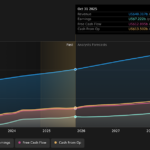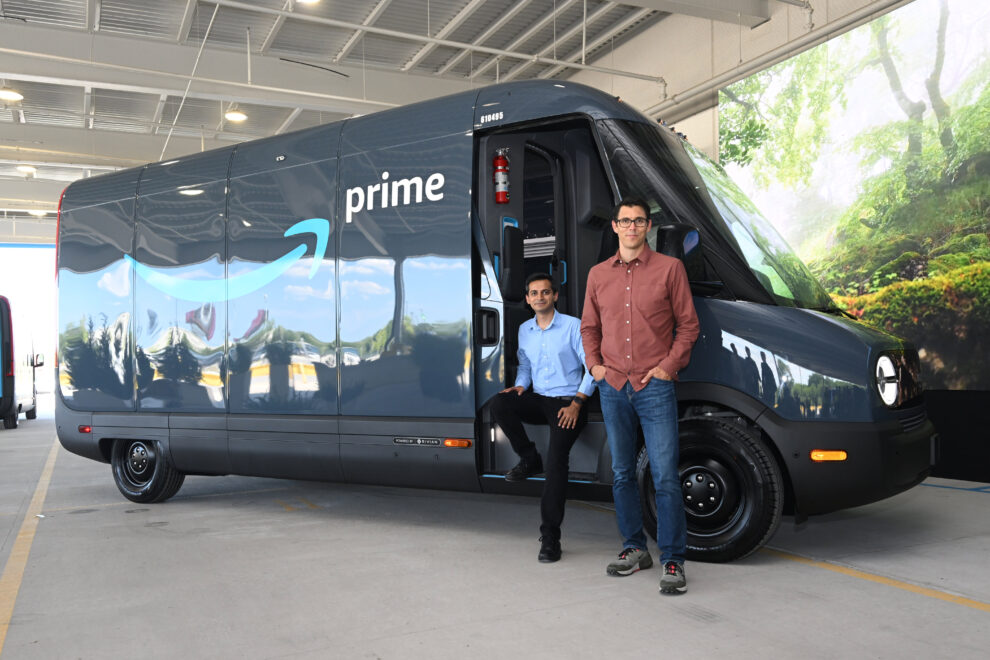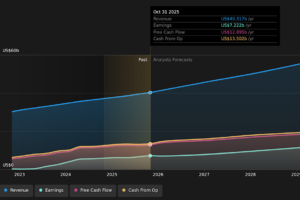
Rivian has managed to create a strong brand, among other factors that make it a stock to buy.
While electric vehicle (EV) sales growth in the U.S. hasn’t been as explosive as anticipated, the truth is that EVs are here to stay and are poised to boom in the years ahead. If you’re buying into the long-term EV thesis, it’s compelling to try to find the next Tesla-like investment.
Here are a few reasons EV maker Rivian Automotive (RIVN 1.27%) could be next in line to make a name for itself in this budding industry.
Branding
“If you build it, they will come” might work in the movies, but not so much in the automotive industry. In the highly competitive field, your product has to speak volumes, or consumers will leave the brand in droves.
Fortunately, Rivian has built a great brand early in its story by winning Best Ownership Experience in J.D. Power’s 2023 U.S. Electric Vehicle Experience Ownership Study. According to Consumer Reports, Rivian tops the list of automakers for top brand that customers would purchase again, with over 86% of consumers saying they’d buy another Rivian.
By all accounts, Rivian’s R1T and R1S are well received, well designed, and well built, and a strong brand will enable the company to build off its early success.
Rate cut
The Federal Reserve announced it would cut the overnight borrowing rate by 50 basis points, or half a percentage point, thanks in part to a softening inflation and jobs picture. This does multiple positive things for Rivian. First, it will help lower borrowing costs as the company continues to burn through cash and will almost certainly need to raise capital at some point in the future.
The rate cut will also help the company’s emerging leasing program. Leasing can enable consumers to reduce upfront costs, lower payments, and stay in new models for less money. Rivian started its leasing program last November and has expanded into 33 U.S. states. It will continue to expand, and now it can offer better rates to further entice consumers.
Perhaps best of all, the fed rate cut will help push back fears of an impending recession, which would have certainly put a drastic dent in Rivian’s sales.
More than meets the eye
If you’re interested in Rivian as an investment, you’ve no doubt heard of the deal it inked with Volkswagen. It’s a massive deal that could lead to a total investment of $5 billion. But there’s more to this deal than meets the eye.
Sure, it’s a huge bonus that Rivian is attracting investment, and the potential $5 billion deal will help fund the company on its many ambitions. But this deal is just as much about Rivian’s ability to develop proprietary technology, software, and hardware it can sell to other automakers.
Volkswagen’s agreement to enter a joint venture to use Rivian’s proven hardware and technology platform in its vehicles is confirmation that the start-up EV maker can indeed pursue this strategy.
The big tease
Most investors know about Rivian’s originally exclusive deal with Amazon to deliver 100,000 electric delivery vans to the e-commerce juggernaut by 2030. Most also know this agreement was made non-exclusive late in 2023, but we’ve yet to really see the fruits of the decision. Rivian had one new large customer, AT&T, but a wave of customers could be coming over the next couple of years.
The main reason is that once this agreement between Rivian and Amazon became non-exclusive, it would take time for other companies to sign up for pilot programs and testing. With almost a year gone since the agreement went nonexclusive, 2025 and 2026 could be the years we see a number of customers come forward for the company’s electric delivery vans, and it could be a nice boost to stalling overall deliveries.
Scratching the surface
These are four solid reasons for Rivian investors to remain optimistic about the future, and we only scratched the surface. Keep in mind that Rivian has the R2, R3, and R3X on the way in 2026, continues to cut costs and move toward gross profits in the fourth quarter, has refreshed and introduced the next-generation R1T and R1S, and has enough cash to last through the launch of its highly anticipated R2.
Rivian’s stock might have shed 42% of its value over the past year, but things are much better than they appear, and the stock could offer aggressive investors — remember, Rivian will remain highly speculative with large price swings — a way to buy into the future of EVs.
John Mackey, former CEO of Whole Foods Market, an Amazon subsidiary, is a member of The Motley Fool’s board of directors. Daniel Miller has no position in any of the stocks mentioned. The Motley Fool has positions in and recommends Amazon, Tesla, and Volkswagen. The Motley Fool recommends Volkswagen Ag. The Motley Fool has a disclosure policy.














